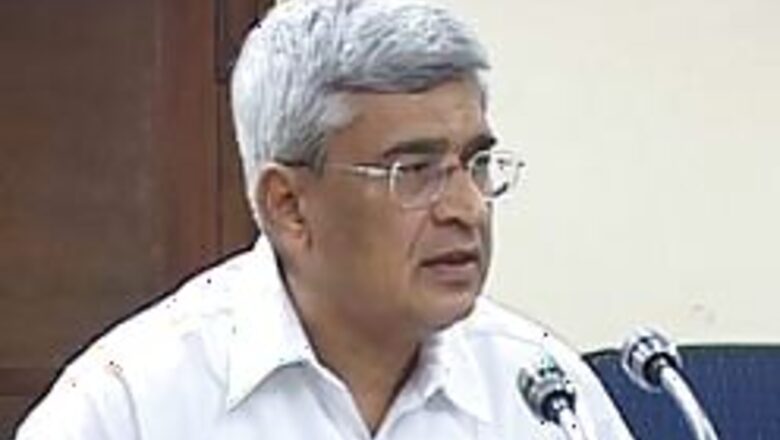
views
New Delhi: Prakash Karat, the reigning oracle of the Indian communist movement, was deeply religious in his younger days and had wanted to be an engineer. But a teacher persuaded him to go to Edinburgh where he embraced Marxism.
And he has never been to the United States, the country he is dogmatically opposed to, Karat reveals in a rare interview to the Malayala Manorama newspaper in Kerala.
Karat, who turned 60 on Thursday and whose pronouncements and policies are the guiding posts for millions of Communist followers and a bugbear for the government of Prime Minister Manmohan Singh to whom the Left provides crucial parliamentary support, was for long a shy and introvert young man.
Politics was far from his mind, and his other loves were cricket, volleyball and football.
The general secretary of the Communist Party of India-Marxist (CPI-M), and one of the country's most influential politicians today, was also a bookworm. Karat told the newspaper that he has a fascination for crime fiction, his favourite writer being Ian Rankin followed by Michael G Cornelius and Henning Mankell.
Karat said that until the age of 14 he was staunchly religious and used to visit temples frequently with his mother. He could recite Sanskrit verses by heart. Also as a youngster, he was an admirer of Carnatic musician M S Subbalakshmi and danseuse Yamini Krishnamurthy.
Born in Myanmar where his parents worked, his only sister died very young. "I was very shy. In school, I was always reserved and devoted to studies and books. I used to win all the proficiency prizes including the Bible scripture prize."
The family faced tough times when he and his mother returned to India after the father's death. His mother took a loan to buy a house in Chennai that was rented out for a living. The mother and son lived in the outhouse.
Despite the hardships, he got what he desired because he was the only child. In the second year of his college, he rode a Jawa motorcycle. "But I had to sell that motorcycle to pay the airfare to go to Edinburgh," he said.
Karat did almost his entire studies through scholarships. He wanted to be an engineer. But his political professor at the Madras Christian College, Duncan Forester, a Scottish reverend, egged him to join the Edinburgh University.
Karat also had a reason to go to Edinburgh. "I wanted to avoid taking a job after my graduation."
His brush with Communism started during his college days in Chennai. Those were the days of the Vietnam War.
In Edinburgh, where he did his thesis on language and national politics, Marxist historian Victor Kiernan lured him to the leftwing movement but advised him against becoming a full time Communist.
When he returned to India in 1970, Karat did just that although he was torn between the older Communist Party of India or the CPI-M. His eventual choice was made possible by E.M.S. Namboodiripad's articles.
After a stint as student leader at New Delhi's Jawaharlal Nehru University, Karat went underground during the 1975-77 emergency regime of former prime minister Indira Gandhi. It was also the period when Karat married his friend and comrade from his Kolkata days, Brinda.
To avoid arrest during the emergency, Prakash and Brinda lived in a house near Delhi University under the assumed names Sudhir and Rita. The couple sold their properties, and Karat wanted to give the money to the party. But the party bosses asked them to put their money in a bank and live on its interest instead of taking an allowance from the party.
A health freak, he walks daily for 45 minutes - and reads crime fiction whenever he gets a chance.
"That is a diversion. It's not my major reading. When I want to relax or when I travel, I read crime fiction because there is a type that is sophisticated. It's not just crime... It gives you an idea of the society where the theme is located."
He added: "I never been to America. But I get a good idea of what Los Angeles is from Cornelius' books. He writes only about Los Angelus."
Karat still enjoys listening to classical music and western classics.
He has one regret. "I wish I could write more. Most of my writings are functional, you write for some purpose... One of my shortcomings is that I did not spend time for theoretical work. I could do more."




















Comments
0 comment